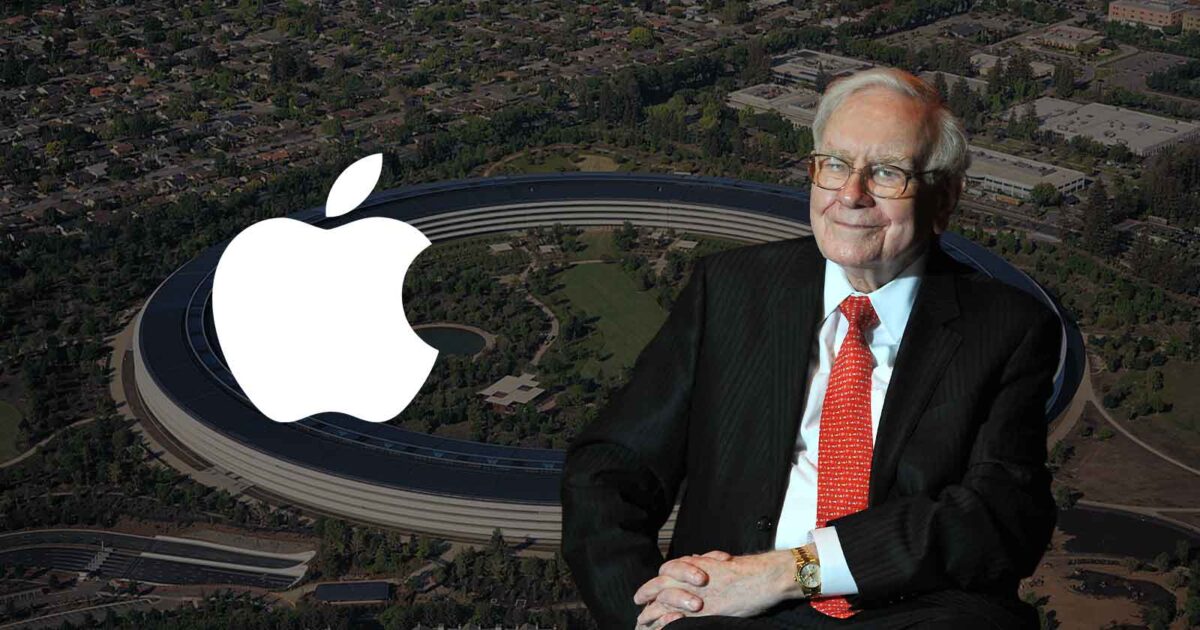
In 2016, Warren Buffett made a move that turned heads. Berkshire Hathaway, his company, began acquiring shares in Apple—a departure from his usual investment strategy, which typically avoided such tech-oriented stocks.
Notably, just a few years earlier, Warren Buffett had suggested to executives from another firm that Apple might be a stock to short, rather than buy. Although Buffett himself doesn’t recall this conversation and has never explicitly recommended shorting any stock, it underscores the surprising nature of his subsequent investment in Apple.
Charlie Munger, Warren Buffett’s long-time partner, had also expressed skepticism about Apple, once stating that it was “un-Berkshirelike.” However, working with his team, Buffett underwent a significant change of heart. Berkshire initially purchased nearly 10 million shares of Apple in 2016, valued at around $1 billion.
This marked the beginning of a series of purchases, culminating in roughly $36 billion invested in Apple over the following years. By the end of 2018, Apple constituted about a quarter of Berkshire’s entire investment portfolio, a stark contrast to Warren Buffett’s previous investment patterns.
This unconventional move paid off handsomely. Berkshire’s 5.9% stake in Apple is now valued at approximately $157 billion, making it one of Warren Buffett’s most lucrative investments to date. However, despite this success, Apple’s recent challenges have raised concerns about its future prospects.
The company’s stock has declined by 10% this year amidst antitrust issues, slowing sales in China, and criticism over its artificial intelligence efforts. As Warren Buffett contemplates passing the reins of Berkshire to his successors, questions arise about the fate of its substantial Apple holdings.
For Berkshire, Apple represented a shift in strategy, driven in part by Buffett’s investment managers, Ted Weschler and Todd Combs. Combs, in particular, was tasked with identifying potential investments meeting specific criteria, leading him to recommend Apple based on its financials and market position.
Warren Buffett’s own assessment of Apple evolved over time. Initially viewing it as a tech company, he later recognized its strength as a consumer goods provider with considerable pricing power. Despite concerns from other investors who had sold their Apple shares at lower price-to-earnings ratios, Buffett saw long-term potential in the loyalty of iPhone users and the company’s ability to generate profits through product upgrades.
However, the sheer size of Berkshire’s investment in Apple has raised questions about its riskiness. While some argue that Apple’s dominance in the market justifies holding onto its shares, others express concerns about its ability to maintain its position in the long term.
In the face of Apple’s recent challenges and its high valuation relative to the market, Berkshire’s decision to retain its holdings reflects a strategic choice. With few alternatives offering comparable returns, Buffett appears willing to weather the uncertainties surrounding Apple’s future.
Ultimately, Warren Buffett’s investment in Apple stands as a testament to his willingness to adapt and evolve, even in the face of skepticism. As Berkshire navigates its future without Buffett at the helm, the fate of its Apple holdings will be closely watched by investors and analysts alike.



